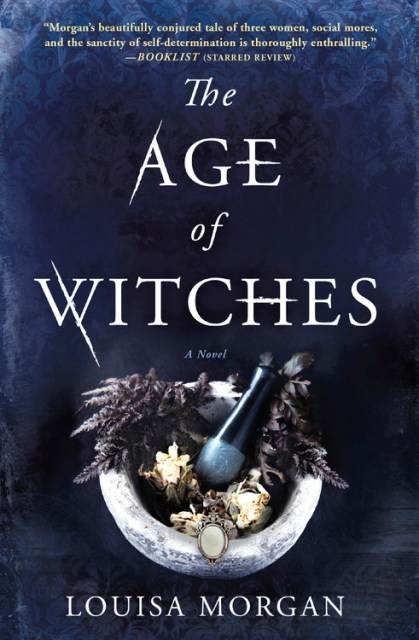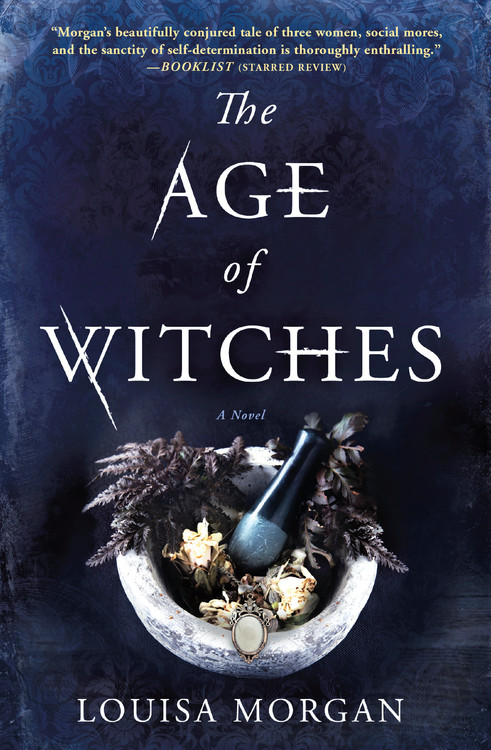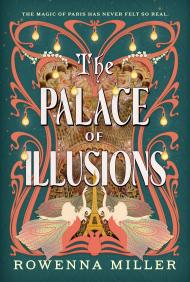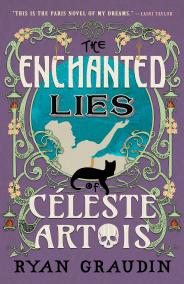By clicking “Accept,” you agree to the use of cookies and similar technologies on your device as set forth in our Cookie Policy and our Privacy Policy. Please note that certain cookies are essential for this website to function properly and do not require user consent to be deployed.
The Age of Witches
A Novel
Contributors
Formats and Prices
- On Sale
- Feb 9, 2021
- Page Count
- 464 pages
- Publisher
- Redhook
- ISBN-13
- 9780316419543
Price
$19.99Price
$25.99 CADFormat
Format:
- Trade Paperback $19.99 $25.99 CAD
- ebook $9.99 $12.99 CAD
- Audiobook Download (Unabridged)
This item is a preorder. Your payment method will be charged immediately, and the product is expected to ship on or around February 9, 2021. This date is subject to change due to shipping delays beyond our control.
Buy from Other Retailers:
In Gilded Age New York, a centuries-long clash between two magical families ignites when a young witch must choose between love and loyalty, power and ambition, in this magical novel by Louisa Morgan.
In 1692, Bridget Bishop was hanged as a witch. Two hundred years later, her legacy lives on in the scions of two very different lines: one dedicated to using their powers to heal and help women in need; the other, determined to grasp power for themselves by whatever means necessary.
This clash will play out in the fate of Annis, a young woman in Gilded Age New York who finds herself a pawn in the family struggle for supremacy. She’ll need to claim her own power to save herself-and resist succumbing to the darkness that threatens to overcome them all.
Praise for The Age of Witches:
“Morgan’s beautifully conjured tale of three women, social mores, and the sanctity of self-determination is thoroughly enthralling.” —Booklist (starred review)
“Morgan’s incantatory prose and independent-minded women will delight fans of Alice Hoffman and Sarah Addison Allen with this tale of female self-realization and magical realism. A highly enjoyable read.” —Historical Novel Society
“An Austen-esque romance, a heart-racing mystery full of dangerous twists and an anxiety-inducing yet enthralling family feud….It all makes for a perfect brew.” —Bookpage
For more from Louisa Morgan, check out:
A Secret History of Witches
The Witch’s Kind
Genre:
-
"Morgan's beautifully conjured tale of three women, social mores, and the sanctity of self-determination is thoroughly enthralling."Booklist (starred review)
-
"[A] robust tale of matriarchal magic in a lushly depicted Gilded Age New York....Readers will root for these powerful women as they struggle to overcome the social limitations of their time, whether through magic or force of personality."Publishers Weekly
-
"A compelling tale of love and magic in historic America and England....This is a must-read for those who like magic, love and a little bit of feel-good feminism."Library Journal
-
"Morgan’s incantatory prose and independent-minded women will delight fans of Alice Hoffman and Sarah Addison Allen with this tale of female self-realization and magical realism. A highly enjoyable read."Historical Novel Society
-
"An Austen-esque romance, a heart-racing mystery full of dangerous twists and an anxiety-inducing yet enthralling family feud....It all makes for a perfect brew."Bookpage
-
"The strength of Morgan's powerful story is her depiction of this time and place and the everyday struggles of determined women. A great choice for readers who enjoy novels by Alice Hoffman and Barbara Kingsolver."Booklist on The Witch's Kind
-
"Family, love, and ultimately personal strength. Fans of Morgan's The Secret History of Witches will appreciate this latest installment, and newcomers will be equally enchanted."Historical Novel Society on The Witch's Kind
-
"Morgan's transportive words will sweep you away to a time of magic, love, and loss. Simply hold on and enjoy this mesmerizing ride."Tish Thawer, award-winning author of The Witches of BlackBrook series, on A Secret History of Witches
-
"Epic in scope and heartbreakingly tender in its portrayal of mothers and daughters... Recommended for fans of Nora Roberts and readers of feminist fantasy."Booklist on A Secret History of Witches
-
"I loved it. A beautiful generational tale, reminiscent of Practical Magic if it had been set in various time periods, but much more expansive in scope. Grounded and real, painful and hopeful at the same time."Laure Eve, author of The Graces, on A Secret History of Witches
Newsletter Signup
By clicking ‘Sign Up,’ I acknowledge that I have read and agree to Hachette Book Group’s Privacy Policy and Terms of Use







